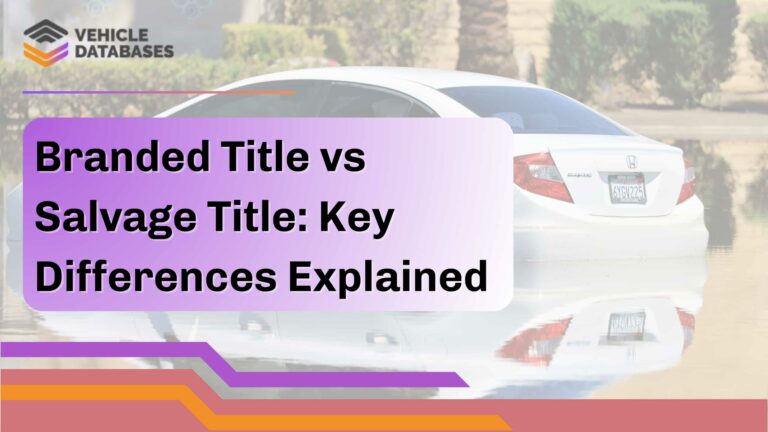Vehicle specifications or car specs are a snapshot of all the vital pieces of information about the vehicle.
This information is usually printed out and displayed as a decal, windows sticker, or Monroney label.
This vital information helps the buyer to know if the vehicle is what they intend to buy and hence provides the confidence the buyer needed.
To a seller, a display of the vehicle specifications helps to sell the vehicle, even more, faster, making the seller appear as trustworthy.
But sometimes even when these specifications are clearly spelled out, a buyer may find the technical jargon difficult to understand.
It is then necessary to help you understand this technical jargon to enable a good buying decision.
Understanding Technical Specifications
Here are the most frequently used technical terms in vehicle specifications:
ABS
ABS stands for Anti-lock Braking System, this mechanism keeps the wheels of the vehicle from when the brake is forcefully applied.
It is a safety feature in the car that protects the car from skidding when the brake is forcefully applied.
Airbags
Airbags are quick-inflating materials that cushion the effect of collision, they protect the passengers in an event of a collision.
Engine Displacement
This is a measurement of the volume of the engine’s cylinder, it is usually measured in cubic centimeters.
Let’s use this as an example: a 1.3-liter cylinder engine has 1.3 liters of volume in its four cylinders. The displacement of an engine is a determining factor as to how much horsepower and torque it can command
Horsepower
The horsepower is a value that is achieved after so many factors that relate to the vehicle’s performance are put in place.
In simple terms, horsepower is a measure of the engine’s output and one horsepower is equivalent to the strength of a thoroughbred horse.
In mechanical engineering, we define it as the power needed to raise 550 pounds one foot in one second.
Miles per gallon
This is one of the most pressing factors influencing the decisions of many car buyers.
A vehicle’s miles gallon rating is a measure of how many miles it can travel on one fuel gallon.
Torque
In simple terms, torque is the force used to rotate the to which it is applied. In vehicles, it is the ability to force the tyers to rotate.
Be advised, diesel-powered vehicles usually have a higher level of torque than their gasoline-powered counterparts.
Drive train
The vehicle’s drivetrain connects your transmission or gearbox to the drive axles, there are three major types of drivetrain, the front-wheel drivetrain, rear-wheel drivetrain, and all-wheel drive system.
Engine
This is the powerhouse of the car, it makes or creates the power needed to push the vehicle back and forth.
There are four types of engines based on the fuel they consume, and they include gasoline, diesel, electric, and hybrid, which is a combination of gasoline and electric power sources.
Transmission speeds
This is how fast a car can go if follows the principle of selecting a lower gear for a small speed and a higher gear for a higher speed.
Transmission types
There are two types of transmission in one case (manual transmission) you will have to move the gears by hand through the shifter and clutch pedal while you brake and accelerate, while in the other type of transmission (Automatic transmission ) selection of gears is done automatically by the car.
Having seen all the major technical specifications usually outline in a car now let’s dive in and get the meaning of vehicle specifications API.
What is vehicle specification API
API stands for Application Programming Interface, it is special software that enables interaction between computers.
You can think of an API as a messenger that delivers a message to a distant land and brings desired or requested feedback.
Well, in this case, the distant land is our database, when you make a request with our vehicle specification API it returns data.
The API returns a JSON file containing information about the above-listed vehicle specification and lots more information.
This JSON file could be modified by the receptor to present the received data in a manner friendly or supportive to his business.
This means they can present the data to who so ever needs to be customized to represent what their business stands for.
Who needs the vehicle-specific information?
Individual car sellers:
They need the vehicle specification data to sell and bargain with confidence.
Car dealers:
Car dealers can use this tool to ensure that all vehicles in their showrooms correspond to the taste of the users of the car in that locale
Car inventory keepers.
Car inventory personnel needs this API so they can have an accurate understanding of the vehicle in their inventory
Car buyer
Individual car buyers need the vehicle specification data so they can be sure that they are buying or spending on the right vehicle
Online auto auctions
Online auto auctions need this API, especially because they can not possibly see the car physically most of the time. with this API they can from a distance get to know all about any vehicle specification.
Auto insurance
Auto insurance companies need to evaluate all the cars registered with them in terms of worth and specifications, that is where the vehicle specification data comes into play
Used car websites(car buying and selling)
Used car websites can link our API to their sales page enabling buyers and sellers to display the specifications of every car in the market or their online shop.
Get your vehicle specifications API now!




